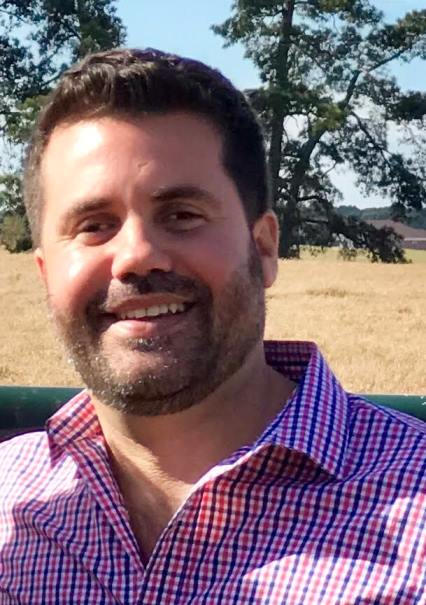
Assisted by ASBTDC Lead Center at UA Little Rock | ASBTDC at Southern Arkansas University
Consultant Rebecca Todd
Magnolia Company Develops Assistive Devices for the Deaf, Visually Impaired
Magnolia-based Fauxsee Innovations has won a one-year, $225,000 Small Business Innovation Research award to develop and test RoboHear™, a new and affordable haptic technology for bringing speech understanding to the deaf.
The funding is from the National Institute on Deafness and Other Communication, part of the National Institutes of Health.
Globally, 360 million people have disabling hearing loss. In the U.S., 37.6 million adults have hearing difficulties, and more than one million are profoundly deaf, meaning they are unable to hear speech or participate in a normal conversation.
“I was inspired to invent the RoboHear solution when I heard on the news about a tragic event where an unarmed deaf man was shot and killed by police because he did not understand their commands, and they did not know he was deaf. I wanted to figure out how to assist a deaf user in understanding spoken language – not just sign language,” said Brandon Foshee, CEO and president of Fauxsee Innovations.
Fauxsee’s RoboHear device could provide a non-surgical and more affordable alternative to a cochlear implant, currently the only hearing solution for the profoundly deaf. A cochlear implant is expensive ($40,000 to $100,000), and not all profoundly deaf people are candidates for such surgery.
“Our product pricing goal for the design of the RoboHear device is under $2,000,” said Foshee. A successful trial in Phase II would support Food and Drug Administration approval leading to health care coverage.
Company Background
Fauxsee Innovations has received four SBIR/STTR awards to date. This is the team’s second award from the NIH. Their previous NIH Small Business Technology Transfer award from the National Eye Institute is supporting development and testing of the company’s Roboglasses product.
Roboglasses also use haptic touch to help the visually impaired navigate more safely by alerting them of obstacles in the upper-body pathway that can’t be detected by a walking cane or seeing-eye dog.
“We are leveraging our patented haptic feedback system developed for the Roboglasses device to encode phonetic sounds, similar to the way in which Braille encodes letters of the alphabet. Our new funding will allow us to determine if our haptic feedback system enables a deaf user to feel the words as they are spoken in near real-time,” said Foshee.
Fauxsee Innovations will continue to engage Dr. Nicholas Giudice of the University of Maine as a consultant and orientation-and-mobility subject matter expert.
“His expertise in man-machine interfaces and user considerations in design will be valuable in this effort. He is familiar with our Roboglasses device and haptic feedback system as he serves as the UMaine principal investigator on our on-going NIH Roboglasses feasibility trial,” Foshee said.
Collaboration with UAMS
Fauxsee is also collaborating with the Department of Otolaryngology at the University of Arkansas for Medical Sciences on the project.
“We have leveraged the expertise of Dr. Dornhoffer and his clinical and research team to lead the feasibility tests of RoboHear device with patients from their clinic as well as team members. They will use the same practice materials and outcome measures that cochlear implant patients use to learn to hear but with the RoboHear device and these patient participants,” Foshee said. “By the way, Dr. Dornhoffer has a cochlear implant, so he is an expert as a clinician/researcher as well as a user!”
ASBTDC Assistance
Fauxsee Innovations is a long-time client of the Arkansas Small Business and Technology Development Center.
“Rebecca Todd of the Arkansas Small Business and Technology Development Center was there every step of the way. Over the years, she has built relationships within the state and federal agencies and is happy to reach out on your behalf. She was able to provide market research and crucial guidance, which led to our successful outcome,” said Foshee.
State Funding
The Fauxsee team received a Technology Transfer Assistance Grant from the Arkansas Economic Development Commission to write the original RoboHear proposal. “The USDA liked the proposal but thought that it was a better fit for the NIH, so we adapted the proposal to the NIH guidelines and resubmitted it,” said Foshee.
Research reported in this publication was supported by the Institute on Deafness and Other Communication (under Award Number R43DC017671-01). The content is solely the responsibility of the authors and does not necessarily represent the official views of the National Institutes of Health.